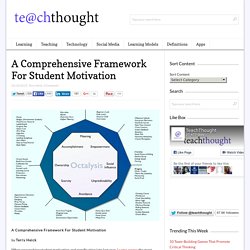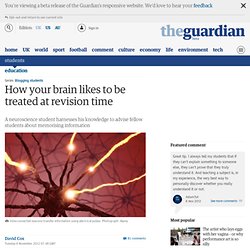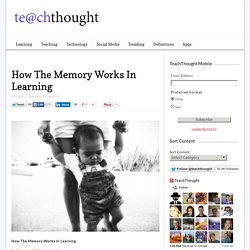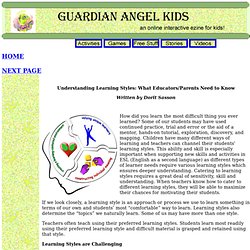

Back to Basics: Perfect Your Note-Taking Techniques. 25 Useful Brainstorming Techniques. By Celes on Feb 9, 2009 | ShareThis Email This Post Caught with a problem you cannot solve?

Need new ideas and solutions? The process of brainstorming requires you to think out of the box that is keeping you in the problem. The idea for this post was triggered by a question from a reader, who asked me on my thoughts of the best brainstorming methods to achieve the best results. Here is a list of 25 brainstorming techniques you can use to get out of the situation you are in. Time Travel. Final note: To get a quick mental boost in just 15 minutes, check out: Increase Your Mental Clarity in Just 15 Minutes Get the manifesto version of this article: [Manifesto] 25 Useful Brainstorming Techniques Image © What schools need: Vigor instead of rigor - The Answer Sheet.
This was written by Joanne Yatvin, a veteran public school educator, author and past president of the National Council of Teachers of English.

She is now teaching part-time at Portland State University. A version of this was originally published in the Atlanta Journal Constitution. A Comprehensive Framework For Student Motivation. A Comprehensive Framework For Student Motivation by Terry Heick When researching student motivation and gamification late last year, I came across the most comprehensive gamification framework I’ve ever seen.

Homeschooling. Science, Creativity and the Real World Gifted Homeschoolers Forum. Science, Creativity and the Real World: Lessons Learned from the U.S.

Homeschool Community By Corin Barsily Goodwin and Mika Gustavson, MFT A great deal of concern surrounds the lack of quality in science education in the United States. How being called smart can actually make you stupid. A few months ago I posted a piece which has become my most popular blog post by quite a landslide.

The post covered various techniques for learning and looked at the empirical evidence for and against their efficacy based on recent research. This post is my follow up, in which I look at the case for one tip for learning that it seems really could have a big impact. A growing body of evidence from the last two decades suggests that our attitude towards our own potential for intelligence has a considerable impact on our lives, furthermore we are incredibly vulnerable to having this attitude or "mindset" moulded for better or worse, by how people praise us in a way that is both shocking and problematic.
Stanford psychology professor Carol Dweck has presented a range of startlingly fascinating findings on the topic which have been broadly supported by further research. References: Blackwell L.S., Trzesniewski K.H. & Dweck C.S. (2007). Mind - Research Upends Traditional Thinking on Study Habits. How your brain likes to be treated at revision time. If you're a student, you rely on one brain function above all others: memory.

These days, we understand more about the structure of memory than we ever have before, so we can find the best techniques for training your brain to hang on to as much information as possible. The process depends on the brain's neuroplasticity, its ability to reorganise itself throughout your life by breaking and forming new connections between its billions of cells. How does it work? Information is transmitted by brain cells called neurons. When you learn something new, a group of neurons activate in a part of the brain called the hippocampus.
Your hippocampus is forced to store many new patterns every day. How The Memory Works In Learning. How The Memory Works In Learning By Dr.

Judy Willis, M.D., M.Ed. Teachers are the caretakers of the development of students’ highest brain during the years of its most extensive changes. As such, they have the privilege and opportunity to influence the quality and quantity of neuronal and connective pathways so all children leave school with their brains optimized for future success. This introduction to the basics of the neuroscience of learning includes information that should be included in all teacher education programs.
Teaching Grows Brain Cells. Top 10 skills children learn from the arts. Praise versus Encouragement. Most of us believe that we need to praise our children more.

However, there is some controversy regarding this point. If we always reward a child with praise after a task is completed, then the child comes to expect it. However, if praise is not forthcoming, then its absence may be interpreted by the child as failure. According to Naomi Aldort, "Children who are subjected to endless commentary, acknowledgment, and praise eventually learn to do things not for their own sake, but to please others. " GUARDIAN ANGEL KIDS online ezine for Kids! How did you learn the most difficult thing you ever learned?

Some of our students may have used continued practice, trial and error or the aid of a mentor, hands-on tutorial, exploration, discovery, and mapping. Children have many different ways of learning and teachers can channel their students' learning styles. This ability and skill is especially important when supporting new skills and activities in ESL (English as a second language) as different types of learner needs require various learning styles which ensures deeper understanding. Teaching Expert Learners. Harrisburg Presentation Resources Here are some resources from my presentation in Harrisburg.

Defining and Exploring Gamification from Karl Kapp Here is some additional information. Articles and Blog Entries of Interest 8 Types of Stories to Effect Change Storytelling and Instructional Design Eight Game Elements to Make Learning More Intriguing Games, Gamification and the Quest for Learner Engagement Gamification, […] Continue Reading →